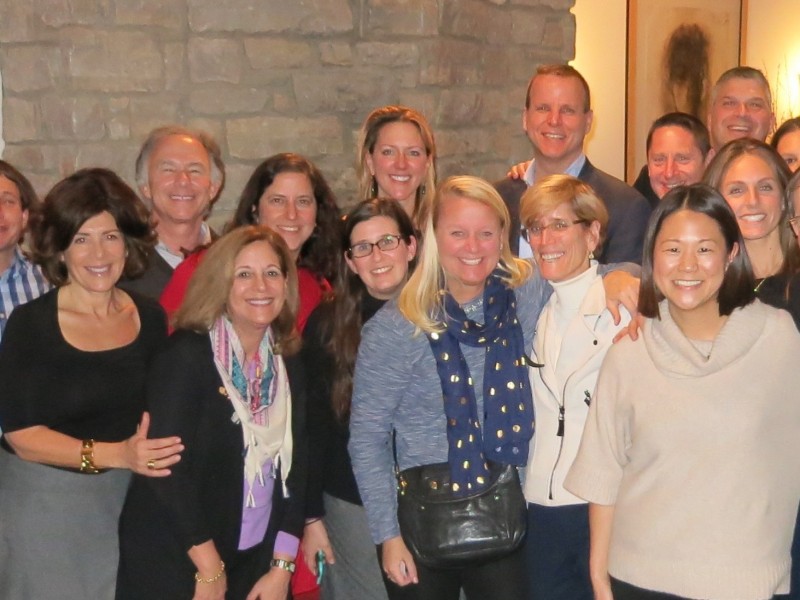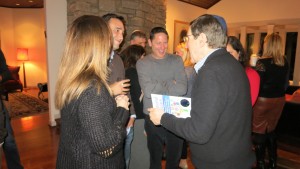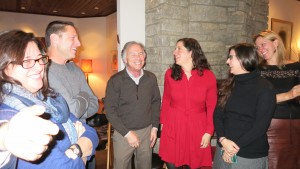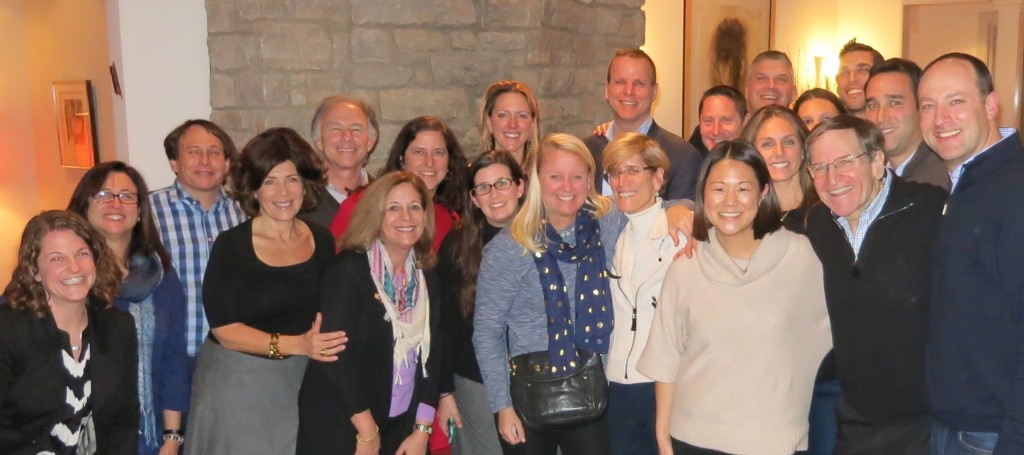Danielle V. Minson — Raising the Bar

New Program Develops Jewish Leaders, Embraces Tradition and Change, Visits Jewish Boston
What question do Jewish communities and their Federations face now more than ever?
The question of how to deal with change—when to change with the times and when to embrace tradition. This year, the Jewish Federation of Cincinnati launched an experiment that combines both responses to change. Hineini—Hebrew for “here I am”—a leadership development program to prepare the next leaders of our community campaign, both fights change and embraces it.
American society is buffeted by hyper-individualism, geographical dispersion, accelerating assimilation and political polarization. These changes make it harder to maintain community and tradition. And, these changes cut against a fundraising tradition that asks people to let community priorities trump their individual preferences.
 Hineini has taken a counter-cultural view—reinforcing the power of traditional community-based funding while employing new ideas and approaches. After four monthly seminars in town, the Hineini group recently took a capstone one-day study mission to Boston.
Hineini has taken a counter-cultural view—reinforcing the power of traditional community-based funding while employing new ideas and approaches. After four monthly seminars in town, the Hineini group recently took a capstone one-day study mission to Boston.
Our first stop was Brandeis University, the world’s only Jewish-sponsored, non-sectarian university outside Israel. Rabbi David Ellenson, the recently retired President of Hebrew Union College, welcomed the group, as he knew several of us from HUC. His new role is President of the Schusterman Center for Israel Studies, the preeminent academic center focused on Israel studies outside Israel.
Then we met with Len Saxe, Director of the Cohen Center for Modern Jewish Studies, and one of the world’s most renowned Jewish demographers. He provided some surprising and hopeful findings, including how intermarriage has actually dramatically increased the number of Americans who consider themselves Jewish. Professor Saxe also showed us that more people are going to synagogues than in the past (although fewer are paying traditional synagogue dues).
We drove downtown to meet with one of America’s most provocative and passionate Federation CEOs, Barry Shrage, who is President of the Combined Jewish Philanthropies of Greater Boston (Boston’s Federation). Boston and Cincinnati battle over which was the first Jewish Federation. While Boston’s was incorporated in 1895, six months before Cincinnati’s, it later closed down and had to be resurrected, making Cincinnati’s the oldest continuously operating Federation.
Boston’s Combined Jewish Philanthropies (CJP) is one of the most creative Federations, especially in the areas of Jewish identity initiatives, Israel connections, and synagogue-Federation partnerships. Cincinnati has looked to Boston for best practices in several areas.
 Still, Shrage argued that, between Cincinnati’s central role in American Jewish history and its relative abundance of investment in Jewish life, Cincinnati has the potential to be at the center of a renaissance of American Jewish community. Shrage said he saw every reason that people all over America should soon say that Cincinnati has many of the most engaging rabbis, congregations, Jewish day schools, Jewish camps, and institutions of adult Jewish learning.
Still, Shrage argued that, between Cincinnati’s central role in American Jewish history and its relative abundance of investment in Jewish life, Cincinnati has the potential to be at the center of a renaissance of American Jewish community. Shrage said he saw every reason that people all over America should soon say that Cincinnati has many of the most engaging rabbis, congregations, Jewish day schools, Jewish camps, and institutions of adult Jewish learning.
Shrage explained that his fundraising efforts with donors are elevating and exciting because the discussions often focus on donors’ potential to change history, including the opportunities to create a shared sense of purpose and meaning in our communities, obliterate Jewish poverty, make Jewish education an exciting and “high-status” activity, and become a leader in the inclusion of people with disabilities.
We were also joined by Rabbi Laura Baum, who started at CJP last year after working for more than a decade in Cincinnati at Beth Adam Congregation, where she launched the award-winning online congregation, OurJewishCommunity.org.
At a renovated historic synagogue, called the Vilna Shul, the group enjoyed some Jewish learning with Rabbi Avi Poupko, formerly a rabbi of Harvard University Hillel. Although he was trained as an Orthodox rabbi, he is now the rabbi of a nondenominational congregation outside Boston where most of his congregants are interfaith families. He couldn’t keep the secret that he is also the son of our own Arna Poupko Fisher.
In our “fireside chat” with Arna, Bret Caller, and Marty Hiudt, we discussed real challenges Federations like ours are facing, including that we don’t have a deep bench for one of our most important roles—leading our community campaign. We discussed trends in fundraising, including that many younger donors are giving based on cause versus organization and few are giving at the level of their parents. We explained that we need them to help us connect to others, and that relationships and influence are critical to campaign success.
We ended the day with a dinner with two speakers: Aron Ain, CEO of Kronos and 2015 Annual Campaign Chair of Boston’s Federation, and Winnie Grinspoon Sandler, CEO of the Harold Grinspoon Foundation, which funds the transformational outreach program, PJ Library.
We arrived back in Cincinnati after 10 p.m. tired but stimulated. True to the Hineini group’s name, its members are already showing their enthusiasm, passion, and potential as fundraising stewards of tomorrow’s Jewish Cincinnati.


